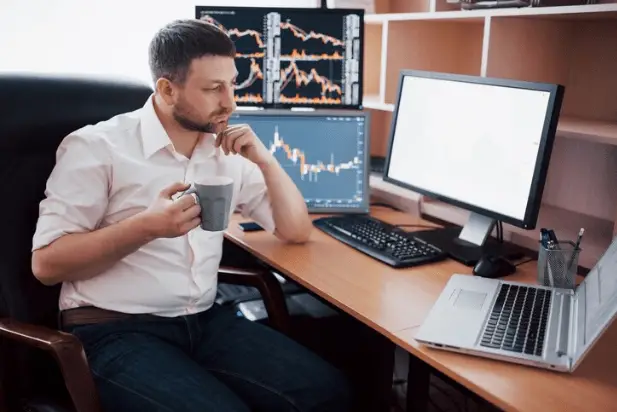Trading the financial markets is equal parts psychological and tactical. The smartest traders come equipped not only with solid knowledge and strong analytical capabilities, but a good psychological basis. Developing your trading psychology will benefit you greatly, as improved discipline can help good judgment and rational decision-making, enable better risk management practices, and can help maintain composure during winning periods as well as losing sequences. This all-in brief covers a variety of the most important ways you can enhance your trading psychology.
Understanding Psychology in Trading
Psychological factors that can influence the trading decision-making process Major psychological factors include:
Everyone seems to be under the influence of these four emotions – Fear, Greed, Over Confidence, Anxiety. ability to stay committed to a trading plan and to wait for the right setups. dealing with the stresses and uncertainties which are a part of trading.
These are the factors that a trader needs to recognize and handle if they want to be successful over the long term.
Trade with a Strong Trading Plan
Disciplined Trading Foundation – The Importance of a Trading Plan Your plan should include:
Entry and Exit Criteria– So, it must define exactly Entry and Exit Criteria (Enter and exit Trade conditions)
Risk Management – % Risk Per Trade, Position Sizing, Stop loss Levels
Trading Goals – Set near term and long term goals that are realistic and measurable.
Market Analysis– Describe the methods and tools that you will use to analyze markets and identify opportunities.
A good plan hardens you to emotion and keeps you on your strategy.
Embrace a Growth Mindset
Developing a Growth Mindset is a must to improve everyday. It prioritizes improvement, growth and learning rather than the natural talent. Key aspects include:
Learning from Losses– Instead of regarding losses and mistakes as failures, take them as ways to learn.
Asking For Feedback– Review your trades on an ongoing basis and ask for feedback from your mentors or peers.
Adaptability- Willingness to shift your tactics with fluctuating data or market trends.
A growth mindset will breed resilience and keep you fresh even as trading ebbs and flows.
Practice Emotional Regulation
While emotional regulation is important at both stages, it might be a bit harder to control yourself as you start earning more money.
This will close you to better decision-making, especially under fear and greed-based impulsive choices. Ways to improve emotional management
Mindfulness and Meditation– Techniques like mindfulness meditation can help you bring yourself back to the now and relieve stress.
Breathing Exercises: Basic breathing exercises can clear your mind and bring the stress down.
Journaling : Journaling helps you get a record of how you react and help you find patterns.
This in turn will help you take more rational and unbiased trade decisions.
Set Realistic Expectations to improve Psychology in Trading
This can make you irritable and push you to make bad choices. To set achievable goals:
Learn to Define and Process Reality– The fact that there is a 100% truth in trading that involves “making gains” or “losses” all schemes are non-existent
Focus on Process, Not Outcomes – Focus on executing your plan properly and not worrying about the outcome of the individual trade.
Avoid Overleveraging-Never lose more than you are able to trade with and keep away from overleveraging your account.
Setting realistic expectations help you ensure that your trading approach is balanced and not too stressful.
Proper Risk Management Skills
Risk management is the number one key success factor in a long-term perspective. Key strategies include:
Proportion Sizing: Size of positions should change as per your Risk Tolerance and the account size.
Stop-Loss Orders: Apply stop-loss orders to stay in the market for longer.
Diversification: Share your risk across funds or assets to minimize the loss by any single investment.
Good risk management helps to preserve your capital and removes the emotional bite of losing trades.
Build patience and discipline
In trading, there are two very important skills that every trader needs to have, regardless of what the market or asset they trade is: Patience and Discipline. To cultivate these qualities:
Follow Your Plan-Stick to your trading plan without being affected by making decisions on the fly.
Read : Wait For Confirmation – Do Not Enter A Trade Without The Correct Analysis
Not Overtrade– Frequency of trading is directly related to number of mistakes in trade which will increase your cost.
It teaches you to be patient and how patience can lead you to discipline… Discipline to stay consistent and avoid more expensive mistakes here.
Build a Support Network
Support systems help in sharing knowledge as well as getting emotional comfort. Consider:
Community Trading– Join social groups in person or online and connect with individuals whom you have similar interest forex with.
Professional Assistance-If you have some emotional or mental problems, challenge you to find a psychologist or a coach.
So, having a strong support network can supercharge your learning, and provide an extra layer of armour to protect against the emotional challenges that trading presents.
Use Technology Wisely
Use technology to reduce trading transaction times and minimize the impact of gut-based decision making.
Trading Platforms: Try to use high performing platforms with specially abilities and tools.
Automated Trading– You can use automated trading systems to trade according to your strategy without emotions.
Data Analysis Tools– Use the tools which help you to analyze market data and take sound decisions.
Technology can also help you in your trading process and it can help you to stay disciplined.

Regularly Review and Adapt
Reflect and Adapt Continuously over the Long Haul. Regularly:
Evaluate Your Trades-Look at which trades you you were right and wrong on.
Change Strategies- Be open to adjusting your strategies (by doing reflection work) if necessary and due to more volatile market conditions.
Check in on how you are doing psychologically-continuously check in with yourself and change your routine/thought process when necessary.
By practicing ongoing reflection you are consistently growing and getting better as a trader.
Stay Educated to improve Psychology in Trading
Financial markets constantly change. But you need to stay competitive, which is where staying educated comes in.
Books and Articles-Spend time to read about trading strategies, market analysis and psychology.
Attend Workshops and Seminars– Attend trading events & learn from top expertise of trading to gain loads of practical knowledge and get almost all possible available strategies that are being utilized by fellow traders around you.
Keep up with the Market News– Remain informed about changes in market trends and relevant news that could affect your trading.
The ongoing learning gives you the knowledge and skills that will help you to navigate them successfully.
Manage Financial Stress
Trading under financial stress can have a drastic adverse effect on the likeihood of success on your trades. To manage this stress:
Trading Capital-Employ a portion of the total money you have for trading and have a financial cushion.
Avoid High-Pressure Trades- Do not pyramids on trades. Do not put down an amount you cannot afford to lose on any single trade.
Thoughtful Financial Planning-With savings, investments in good quality businesses and risk management.
Taking the stress of finances away makes sure you are able to trade with a crystal clear mind.
Conclusion: The Road to Master Your Trading Psychology
Enhancing trading psychology is a gradual course of which wants effort and introspection. Building a robust trading plan, adapting to your profit mindset and practicing emotional control and effective risk management will give you the edge in trading performance and enable you to achieve long term success. Keep in mind that the path to trading psychology dominance is never-ending, so stay attentive and keep reading, reflecting on yourself, and evolving.
If you follow the strategies outlined in this guide, you will be able to set a strong psychological foundation that empowers you to successfully face the challenges of trading with confidence and resilience. Happy trading!

